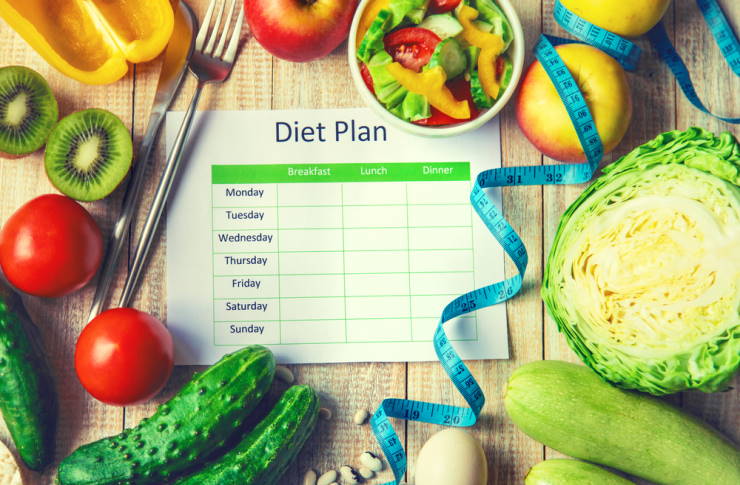Essential Guide: Diet for Herniated Disc Recovery
Discover the key foods to eat and avoid when dealing with a herniated disc. Learn how your diet can support your recovery process and improve your overall spinal health. Find out the best nutritional strategies to enhance healing and alleviate discomfort associated with this condition.

What is a herniated disc and how does diet affect it?
A herniated disc occurs when the soft inner core of a spinal disc pushes through the tougher exterior, potentially irritating nearby nerves and causing pain. While diet alone can’t cure a herniated disc, it can significantly impact inflammation levels, tissue repair, and overall healing. Proper nutrition supports the body’s natural recovery processes, potentially reducing pain and improving mobility.
Which foods should you include in a herniated disc diet?
When dealing with a herniated disc, focus on anti-inflammatory foods that promote healing. Include plenty of colorful fruits and vegetables, such as berries, leafy greens, and bell peppers, which are rich in antioxidants. Omega-3 fatty acids found in fatty fish, chia seeds, and walnuts can help reduce inflammation. Lean proteins like chicken, turkey, and legumes support tissue repair. Whole grains provide essential nutrients and fiber for overall health.
What foods should you avoid with a herniated disc?
To support your recovery, it’s crucial to avoid foods that may exacerbate inflammation. Steer clear of processed foods, sugary snacks, and beverages, as they can increase inflammation in the body. Limit your intake of red meat and full-fat dairy products, which contain saturated fats that may contribute to inflammation. Alcohol and caffeine should also be consumed in moderation, as they can interfere with hydration and potentially worsen symptoms.
How can proper hydration support spinal health?
Staying well-hydrated is essential for spinal health and disc herniation recovery. Water helps maintain the fluid content of spinal discs, promoting their shock-absorbing properties. Aim to drink at least 8-10 glasses of water per day. Herbal teas and infused water can be excellent alternatives if you find plain water unappealing. Avoid sugary drinks and excessive caffeine, which can lead to dehydration and potentially worsen inflammation.
What supplements can aid in herniated disc recovery?
While a balanced diet should be your primary focus, certain supplements may support your recovery. Omega-3 fatty acids, turmeric, and glucosamine have shown potential in reducing inflammation and supporting joint health. Vitamin D and calcium are crucial for bone health, which is closely tied to spinal health. However, it’s essential to consult with a healthcare professional before starting any supplement regimen, as individual needs may vary.
How can you create a balanced meal plan for spinal health?
Creating a balanced meal plan is key to supporting your herniated disc recovery and overall spinal health. Start your day with a protein-rich breakfast, such as Greek yogurt with berries and nuts. For lunch, opt for a leafy green salad topped with grilled chicken and a variety of colorful vegetables. Dinner could include baked salmon, quinoa, and roasted vegetables. Snack on fresh fruits, raw vegetables with hummus, or a small handful of unsalted nuts throughout the day.
When addressing spinal health through nutrition, it’s important to consider the role of professional guidance. While dietary changes can significantly impact recovery, they should be part of a comprehensive treatment plan.
| Service | Provider | Key Features |
|---|---|---|
| Nutritional Counseling | Registered Dietitian | Personalized meal plans, dietary assessments |
| Physical Therapy | Licensed Physical Therapist | Exercises, manual therapy, posture correction |
| Chiropractic Care | Certified Chiropractor | Spinal adjustments, lifestyle advice |
| Pain Management | Pain Specialist | Medication management, interventional procedures |
In conclusion, a well-balanced diet rich in anti-inflammatory foods can play a significant role in supporting your recovery from a herniated disc. By focusing on nutrient-dense foods, staying hydrated, and avoiding inflammatory triggers, you can create an internal environment that promotes healing and reduces discomfort. Remember that dietary changes should complement, not replace, medical treatment, and always consult with healthcare professionals for personalized advice on managing your condition.
This article is for informational purposes only and should not be considered medical advice. Please consult a qualified healthcare professional for personalized guidance and treatment.




